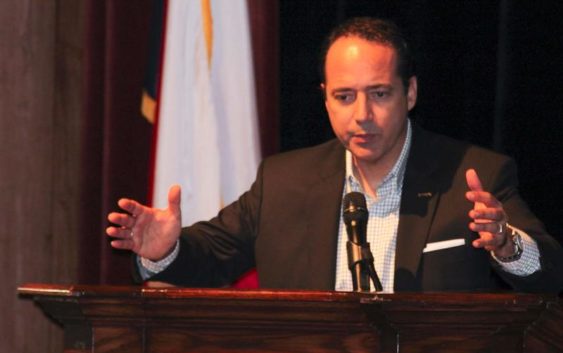- Fake job seekers are flooding the market, thanks to AI
- One set of evacuation orders lifted in Caldwell County after wildfire contained
- 'We gutted every building' | Chimney Rock rebuilding after Hurricane Helene
- 'We gutted every building' | Chimney Rock rebuilding after Hurricane Helene
- Debris from Hurricane Helene provides fuel, complicates containment for spring wildfires
Texas Matters: State Budget Cuts Rankle Lawmakers And Hurricane Evacuations Abandon The Vulnerable

The Texas state government is facing a multibillion dollar budget shortfall estimated to be $4.6 billion. There’s no avoiding that deep cuts are coming to state services. But state lawmakers want a say in which programs are cut back and by how much.
Already state agencies are slashing programs under the direction of the state’s top Republican policy makers.
The Texas House and Senate are not in session now and they are not part of this decision making process, even though they are in charge of crafting and negotiating the state budget.
Meanwhile there is little transparency from the state’s biggest agencies like the Texas Education Agency and Health and Human Services about where exactly the cuts are going to land and who in Texas will be directly impacted.
San Antonio State Sen. Jose Menendez said this is not appropriate, and isn’t how Texas should be doing its business. The Democrat added many of these decisions can wait until the lawmakers return to Austin for the next legislative session which begins in less than five months.
Menendez is calling for a bipartisan, deliberative and transparent process to develop and implement the budget.
Hurricane Readiness
Everyone is in agreement that Texas got lucky this week with Hurricane Laura. The Category 4 storm could have hit a major population area like Houston or Port Arthur, but it didn’t. Lives were spared and billions of dollars in property were not flooded and torn apart. But what about next time?
The Union of Concerned Scientists has studied the gulf coast communities and they predict a major disaster is coming that we have not prepared for. And communities of color on the gulf are most at risk and will be unable to adequately evacuate in time.
Adrienne Hollis is with the Union of Concerned Scientists. She is Senior Climate Justice and Health Scientist at UCS.
David Martin Davies can be reached at DMDavies@TPR.org and on Twitter at @DavidMartinDavi.
TPR was founded by and is supported by our community. If you value our commitment to the highest standards of responsible journalism and are able to do so, please consider making your gift of support today.